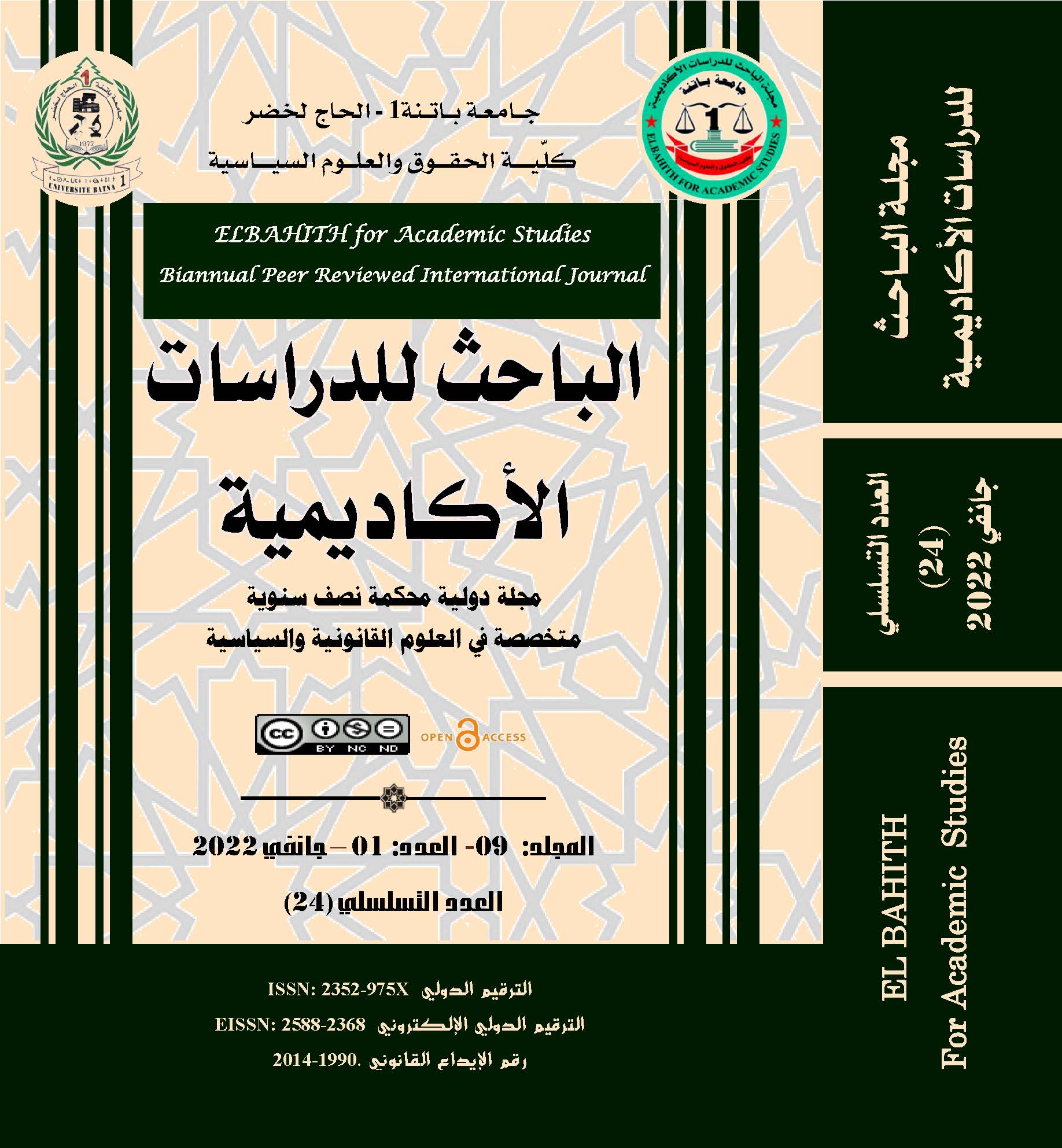التحاصيص العقارية بين الأطر الإجرائية والمخالفات العمرانية
DOI:
https://doi.org/10.59791/efas.v9i1.1602الكلمات المفتاحية:
التحاصيص، السوق العقارية، الوكالةالعقارية، الإجراءات، المخالفاتالملخص
لقد سعت السلطات العمومية في الجزائر إلى محاولة وضع إطار قانوني من اجل تسهيل تدخلات الدولة في مجال العمران، فاتخذت بذلك التحاصيص كعملية عمرانية للنهوض بشتى القطاعات، وعلى الرغم من الأهمية التي أولتها الدولة لهذه الأخيرة من خلال اصدار ترسانة هامة من القوانين والتنظيمات لمنحها فعالية في إنتاج السكن المنظم وذو النوعية الجيدة، إلا أن الواقع يشهد عكس ذلك تماما، حيث لم تعطي النوعية المطلوبة، وذلك بفعل التجاوزات الصارخة التي أحدثتها الأطراف المتدخلة، من خلال الممارسات المخالفة لقواعد التهيئة والتعميير، والانحراف بين التخطيط وواقع الإنجازات.
ولعل من أبرز اهداف الموضوع هو التركيز على الإجراءات والقيود التي تلزم كل متدخل في العملية باحترامها، إلى جانب تسليط الضوء على أهم المخالفات التي تنشأ بسبب انشاء أو تنفيذ التحاصيص العقارية.
وتماشيا مع هذه الأهداف قسمنا الموضوع إلى محورين، الأول ويتضمن الاطار المفاهيمي والاجرائي للتحاصيص العقارية
وفي المحور الثاني تم التطرق إلى المخالفات المترتبة عن إنشاء التحاصيص.
وعن أهم النتائج المتوصل اليها فانه وعلى الرغم من الإجراءات القانونية الهامة والصارمة التي تم تكريسها في اطار انشاء واستغلال التحاصيص العقارية، الا ان ذلك لم يمنع من رصد العديد من المخالفات التي قد تنشأ إما بمناسبة انشاء التحاصيص أو أثناء تنفيذ أو استغلال هذه الأخيرة.
التنزيلات
منشور
كيفية الاقتباس
إصدار
القسم
الرخصة

هذا العمل مرخص بموجب Creative Commons Attribution-NonCommercial-NoDerivatives 4.0 International License.





